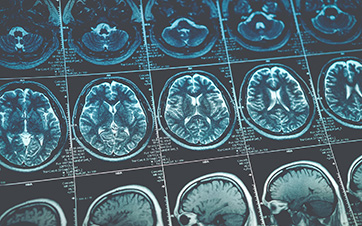
Thankfully, gone are the days when doctors had to rely solely on invasive procedures for brain tumor detection. With its unparalleled ability to reveal the inner workings of the brain, MRI brain tumor technology has undeniably transformed the healthcare field. With that said, read on to discover more about the benefits of MRI technology.
What Is a Brain Tumor?
A brain tumor is an abnormal growth of cells in the brain. It can arise from the brain tissue itself. This is known as the primary brain tumor. It can also spread from other parts of the body, which is referred to as a metastatic brain tumor.
These tumors can be benign or malignant. They also vary in size and location within the brain. Brain tumors can cause a wide range of symptoms, depending on their size and location. Common symptoms include headaches, seizures, and cognitive impairments.
The Benefits of MRI Technology
MRI scans for brain tumors offer numerous benefits in providing diagnoses. Here are a few of them:
Non-Invasive
One of the main advantages of MRI is that it's not intrusive. As a result, there's no need for invasive methods, like biopsies or surgeries. This not only minimizes the risk for patients, but also allows for repeated imaging without causing harm.
Detailed Images
MRI for brain tumor detection provides detailed images of the brain. This allows doctors to locate tumors and assess their size and shape precisely.
Detailed images are crucial for treatment planning. It helps determine the most appropriate surgical approach. Not only that, but it provides accurate targeting of radiation therapy.
MRI also gives insight into the impact of the tumor on surrounding tissues. As a result, the technology enables doctors to assess potential complications and plan interventions accordingly.
Monitoring
MRI technology displays the monitoring of tumor progression over time. By regularly imaging the brain, doctors can assess the effectiveness of treatments. If necessary, they'll make adjustments to the patient's care plan.
This real-time monitoring helps to optimize patient outcomes and ensures that interventions are tailored to each individual.
MRI Brain Tumor Scan: How MRI Technology Works
MRI technology works by utilizing powerful magnetic fields and radio waves to create detailed images of the brain. The process involves several key steps:
1. Magnetization
The patient lies inside of a large cylindrical machine that contains a powerful magnet. This magnet creates a strong magnetic field that aligns the protons (hydrogen atoms) in the patient's body.
2. Radiofrequency Pulses
Radiofrequency pulses are then applied to the patient's body, causing the aligned protons to put out signals. These signals are picked up by a receiver coil, which converts them into electrical signals.
3. Image Formation
The electrical signals are processed by a computer and transformed into detailed images of the brain. Various tissues in the brain produce different signals. This allows for the differentiation of normal brain tissue from abnormal growths, such as tumors.
The resulting images provide healthcare professionals with valuable information about the location and characteristics of brain tumors. This allows for accurate diagnosis, treatment planning, and monitoring of tumor progression over time.
MRI vs. Other Imaging: The Key Differences
Medical imaging plays a crucial role in diagnosing and monitoring various medical conditions. There are several imaging techniques available, including X-rays, CT scans, ultrasounds, and magnetic resonance imaging (MRI).
While each technique has its own advantages, MRI stands out as a powerful tool that offers unique benefits compared to other imaging modalities. Here are the key contrasts:
No Radiation
One of the major differences between MRI and other imaging techniques is the use of magnetic fields and radio waves instead of ionizing radiation. X-rays and CT scans utilize ionizing radiation to form images, which can be harmful in high doses.
However, MRI uses a magnetic field as well as radio waves to produce detailed images of the body's interior. This makes MRI a safer option, especially for vulnerable demographics, like pregnant women and children.
Clear Details
Another significant difference is the level of detail that MRI provides. MRI is well-suited for imaging soft tissues, such as the brain, spinal cord, muscles, and organs. It can capture highly detailed images of these structures, allowing for precise evaluation and diagnosis.
In comparison, X-rays and CT scans are better at imaging bones and hard tissues. Ultrasound is mainly used for visualizing organs near the surface of the body. By offering superior soft tissue visualization, MRI can often provide valuable information that may not be easily detectable with other imaging techniques.
Multiplanar Imaging
MRI gives multiplanar imaging. This means it can capture images in multiple planes or directions. This flexibility enables radiologists to examine structures from different angles, providing a more comprehensive understanding of the anatomy and potential abnormalities.
On the other hand, X-rays and CT scans typically provide images in a single plane. While CT scans offer some degree of multiplanar imaging with the help of computer algorithms, their resolution may not be as high as that of an MRI.
Multifunctional
Another one of the benefits of MRI technology is its ability to distinguish between different types of tissues based on their characteristics. With the use of different imaging sequences, MRI can differentiate between normal and abnormal tissues.
It can also evaluate blood flow, assess tissue perfusion, and detect tumors or areas of inflammation. This versatility makes MRI a valuable tool in diagnosing a wide range of conditions. MRI scans can detect neurological disorders, musculoskeletal injuries, cardiovascular diseases, and cancers.
Coping With Your Brain Tumor Diagnosis
As you can see, receiving an MRI for brain tumor detection is your best bet. This advanced technology has the capability to provide the adequate analysis needed for proper care.
We understand that getting diagnosed with a brain tumor isn't easy. That's why we're here to help. At CT Brain Tumor Alliance, we believe that we're stronger together.
If you need guidance and resources, don't hesitate to call 860-264-5776. We'll be here whenever you need us!
Disclaimer
All content and information on this website is for informational and educational purposes only and nothing herein shall be construed as medical advice. Always consult your medical provider for your particular needs and circumstances prior to making any medical decisions.

